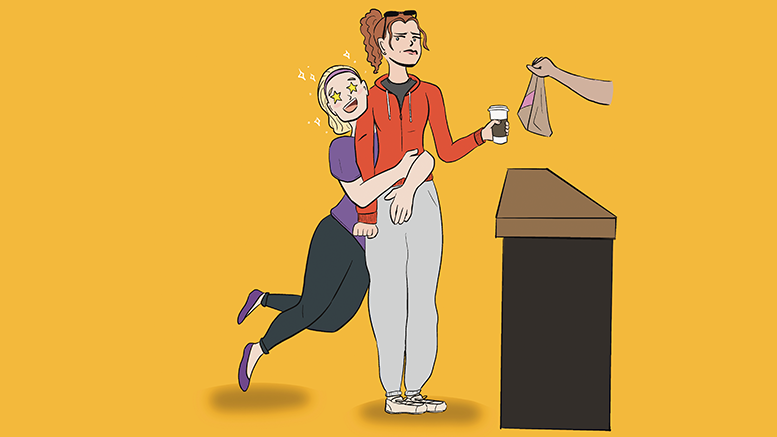It is easy to become immersed in the world of social media. Following influencers that pique your interests is exactly the type of escapism one may need. Some people find comfort in listening to a Joe Rogan podcast, watching the Kardashian’s latest drama or analyzing the lyrics of a Taylor Swift song. Although, when someone begins to invest emotional energy, time and interest into consuming media from a content creator, it becomes a parasocial relationship.
A parasocial relationship is a one-sided relationship fans have with their favourite celebrities. Content creators have no idea who the individuals are that know their favourite foods, their pets’ names or details about their relationships. Creators share experiences with their fans to be personable and fans begin to see these creators as friends – even close friends, perhaps.
Parasocial relationships can be an innocent pastime for people, but for some, it can become an unhealthy obsession that leads to the creators becoming uncomfortable.
Recently, pop artist Chappell Roan’s rise to fame has led her to speak out about how fans can be invasive in her life. She said in a recent TikTok video, “It’s weird how people think that you know a person just because you see them online and you listen to the art they make […] I’m allowed to say no to creepy behaviour, okay?”
Roan stated on TikTok that some fans followed her around, “stalked” her family and even demanded photos or hugs in public when she was clear that she did not want to. Of course, this earned her some backlash. People believe if celebrities stand up for themselves and set boundaries, then they are ungrateful for the fame their fans have brought them.
In an Instagram post, Roan responded to this by saying, “I chose this career path because I love music and art and honouring my inner child, I do not accept harassment of any kind because I chose this path, nor do I deserve it.”
Roan reminded fans that boundaries must be set for artists. Without boundaries, the appeal to create art for the masses becomes significantly less. “I feel more love than I ever have in my life,” she wrote. “I feel the most unsafe I have ever felt in my life.”
A parasocial relationship can easily lead to obsessive behaviour, as per Roan’s situation, but there are healthy aspects to parasocial relationships.
According to a publication in Developmental Psychology, parasocial relationships can help adolescents, in particular, form an identity and develop autonomy. These researchers concluded that associating emotions with people at a distance creates a “safe forum” for people to experiment with different ways of being.
During the COVID-19 pandemic, many people were isolated in their homes and gravitated toward online communities to decrease loneliness. Angela Haupt, a defender of the parasocial relationship, writes in TIME, “parasocial bonds are launching pads into fulfilling online and in-person connections with fans who share similar interests, experts say.” Roan’s openness and confidence online attract fans to her, but this might lead some to believe that they truly know her and that she wants to know them too. Understanding that Roan’s online persona is not the real her is a step toward a healthy parasocial relationship.
Fans are encouraged to enjoy and appreciate creators. Without fans, there would be no creators. But most importantly, fans must remember that creators are human too. Putting creators on a pedestal where fans can say or do whatever they want to them is not what fan culture is about.
Be sure to respect the boundaries of your favourite creators so they continue to do what they love while producing content you love.


